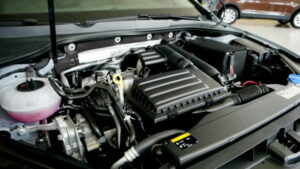Evaluating the Condition of Used Car Parts for Quality Assurance
When it comes to purchasing used car parts, ensuring their quality is crucial for the optimal performance and longevity of your vehicle. While used parts can offer cost savings, it’s essential to evaluate their condition thoroughly to ensure they meet your quality standards. As an expert in the field, I understand the importance of quality assurance when it comes to used car parts. In this article, I will guide you through the process of evaluating the condition of used car parts, equipping you with the knowledge to make informed decisions and choose parts that will deliver the performance and reliability you expect.

Visual Inspection:
Begin by conducting a thorough visual inspection of the used car part. Look for signs of wear, damage, or corrosion. Check for any cracks, dents, or bends that may compromise the part’s structural integrity. Pay attention to any visible leaks, loose connections, or signs of excessive use. A high-quality used car part should be clean, well-maintained, and free from significant damage. If the part appears excessively worn or damaged, it may be best to seek an alternative option.
Functionality Testing:
Functional testing is crucial to ensure that the used car part operates as intended. Depending on the type of part, there are different methods to test its functionality. For mechanical parts such as engines or transmissions, consider seeking professional assistance from a qualified mechanic who can perform diagnostic tests or inspections. Electrical components, such as sensors or modules, can be tested using specialized diagnostic tools or multimeters to check for proper functioning. By verifying the functionality of the part, you can have confidence in its performance and reliability.
Mileage and Usage History:
Understanding the mileage and usage history of a used car part is essential for assessing its condition and remaining lifespan. If possible, inquire about the part’s previous usage, including the type of vehicle it was installed in, the driving conditions it experienced, and the maintenance it received. Knowing the mileage or hours of operation can provide insights into the part’s wear and tear. Generally, parts with lower mileage and well-documented maintenance history are more likely to be of higher quality and offer better longevity.
Quality of Materials:
Evaluate the quality of materials used in the manufacturing of the used car part. High-quality parts are often constructed from durable materials that are designed to withstand the rigors of regular use. Research the original manufacturer’s specifications and standards for the part, and compare them with the used part you are evaluating. Look for indications of genuine manufacturer branding or reputable aftermarket brands known for their quality. Be cautious of parts that appear cheaply made or use subpar materials, as they may not offer the same level of performance or longevity.
Source and Seller Reputation:
The source and reputation of the seller can provide valuable insights into the quality of the used car part. Opt for reputable sellers who have a history of providing high-quality parts and excellent customer service. Research customer reviews and testimonials to gauge the seller’s reputation and reliability. A reputable seller will have transparent policies regarding the condition and quality of their parts, and they will be willing to provide accurate information and answer any questions you may have.
Warranty or Return Policy:
A warranty or return policy is an indication of the seller’s confidence in the quality of their used car parts. A reputable seller will offer a reasonable warranty or return policy that allows you to inspect and test the part upon receipt and return it if it does not meet your expectations or fit your vehicle properly. Carefully review the terms and conditions of the warranty or return policy to ensure that you have sufficient time and flexibility to evaluate the part’s condition and functionality.
In conclusion, evaluating the condition of used car parts is essential to ensure their quality and performance. By conducting a visual inspection, testing the functionality, considering the mileage and usage history, assessing the quality of materials, researching the source and seller reputation, and reviewing the warranty or return policy, you can make informed decisions and select used car parts that meet your quality standards. Remember, quality assurance is key to maintaining the performance, reliability, and safety of your vehicle. Invest the time and effort in evaluating used car parts to make the best choices for your vehicle’s needs and your peace of mind.